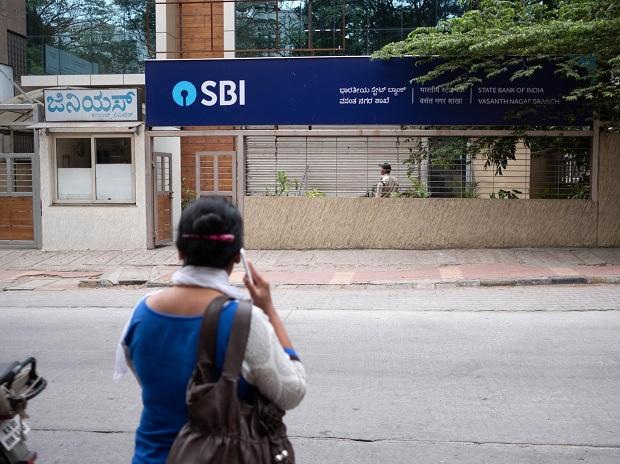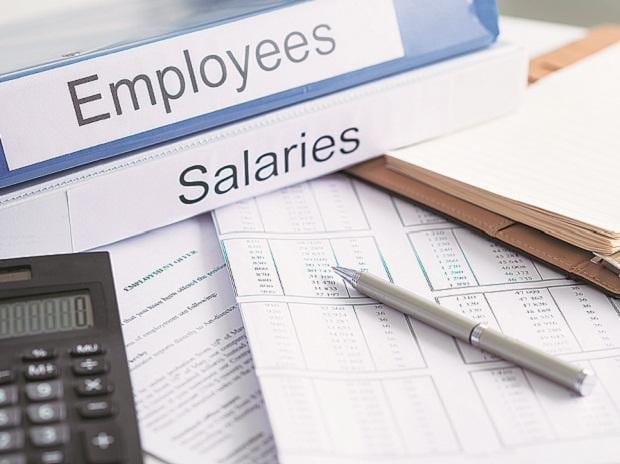State Bank of India’s net profit rose by 73.93 per cent year-on-year (YoY) to Rs 13,265 crore in the July-September quarter Q2FY23 on improvement in interest margins and decline in provisions for bad loans.
Country’s largest lender had posted a net profit of Rs 7,627 crore in Q2FY22.
The bank’s stock closed 1.53 per cent higher at Rs 593.75 per share on the BSE on Friday.
Its net interest income improved 12.83 per cent YoY to Rs 35,183 crore for Q2FY23, against Rs 31,184 crore last year. On a sequential basis, it increased 12.78 per cent, from Rs 31,196 crore in Q1FY23.
The bank’s Net Interest Margin (NIM) in domestic operations improved 3.55 per cent in Q2FY23, against 3.50 per cent a year ago. It improved 5 basis points on a sequential basis, from 3.23 per cent in Q1FY23.
The loan loss provisions declined by 25.5 per cent to Rs 2,011 crore in Q2FY23, from Rs 2,699 crore in the corresponding period last year. Sequentially, provisions were down from Rs 4,268 crore in Q1FY23.
SBI’s advances increased 19.93 per cent YoY, from Rs 25.30 trillion in Q2FY22 to Rs 30.35 trillion in Q2FY23.
SBI chairman Dinesh Khara in media interaction the growth has come on all segments aka retail, corporate, reflecting business in busy season and base effect Corporate Advances rose by 21.18 per cent YoY followed by Retail Personal Advances which grew by 18.84% YoY.
There is a pipeline of Rs 3.75 trillion of corporate credit including sanctions. The overall growth in credit is expected to be 14-16 per cent, up from 10-12 per cent guidance given at the start of the financial year.
The international advances rose by 30.14 per cent Year on Year Rs 4,87,681 crore at end of September 2022. The growth was driven by trade finance, India linked business and local lending in foreign branches, Khara said.
Its deposits expanded 9.99 per cent YoY, from Rs 38.09 trillion in Q2FY22 to Rs 41.9 trillion in Q2FY23. The deposit book grew from a base of Rs 40.45 trillion in June 2022.
The resources would not be a constraint to meet credit demand. The Lender has an excess investment portfolio and part of it would be liquidated part of this book to support loan growth.
Its asset quality profile improved, with gross non-performing assets (NPAs) declining to 3.52 per cent in Q2FY23, from 4.9 per cent a year ago. GNPAs stood at 3.91 per cent in June 2022 (Q1FY23).
The net NPA ratio declined to 0.80 per cent at the end of Q2FY23, from 1.52 per cent a year ago and 1.0 per cent in Q1FY23.
The provision coverage ratio for bad loans stood at 91.54 per cent in Q2FY23, against 87.68 per cent a year ago and 90.14 per cent in Q1FY23.
As on September 30, the bank’s total capital adequacy ratio was at 13.51 per cent in Q2FY23, against 13.35 per cent a year ago and 13.43 per cent in Q1FY23. Bank expects to remain well capitalised and expects internal accruals (ploughing back profits) will be adequate to take care of normal business, SBI chairman added.
Note:- (Not all news on the site expresses the point of view of the site, but we transmit this news automatically and translate it through programmatic technology on the site and not from a human editor. The content is auto-generated from a syndicated feed.))




Having read this I believed it was extremely informative.
I appreciate you taking the time and effort to put this information together.
I once again find myself spending a significant amount of time both reading and commenting.
But so what, it was still worth it!
An intriguing discussion is definitely worth comment.
I do believe that you need to write more on this topic, it might not be a taboo
matter but generally people don’t discuss these subjects.
To the next! Kind regards!!